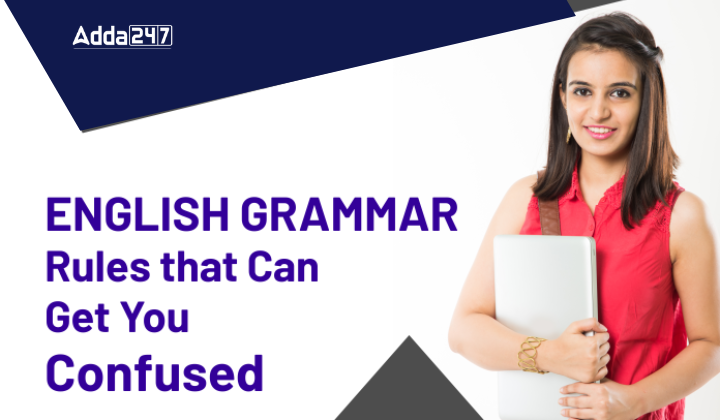English Grammar Rules for Competitive Exams – आसान नियम जो आपके स्कोर को बढ़ा सकते हैं
English Language की बात की जाए, तो cut off को क्लियर करने के ऐसे कोई हार्ड एंड फास्ट रूल्स नहीं हैं, क्योंकि बैंक परीक्षाओं में English section क्लियर करने की कोई ऐसा रूल है ही नहीं, और यही कारण है कि सभी उम्मीदवार English से डरते हैं, लेकिन आपको हम यहाँ English के Rules के बारे में बात कर रहे हैं, जो आपको जानने बहुत ज़रूरी हैं, और आप उनमें अक्सर Confused feel करते हैं:
दरअसल, English सेक्शन को समझने और क्लियर करने के लिए जरूरी है कि आप उसमें आने वाले Grammar Rules और Concepts को सही ढंग से जानें। हम यहां उन्हीं English Rules की बात कर रहे हैं, जिनमें उम्मीदवार सबसे ज़्यादा confused होते हैं, जैसे – Subject-Verb Agreement, Tenses, Active-Passive Voice, और Prepositions आदि। इन नियमों की पकड़ मज़बूत हो जाए तो Reading Comprehension, Cloze Test और Error Detection जैसे टॉपिक्स भी आसानी से हल किए जा सकते हैं।
इसलिए English से डरने की बजाय उसके बेसिक रूल्स को समझना और लगातार प्रैक्टिस करना ज़रूरी है। एक बार जब आप इन रूल्स में कंफिडेंस हासिल कर लेते हैं, तो English सेक्शन भी स्कोरिंग बन सकता है – और यह आपको बैंक एग्ज़ाम की मेरिट लिस्ट में जगह दिला सकता है।
Some of the common jugglers are
Me or I
It is often confusing to know in a sentence like, me and my friend like icecream is wrong
You will have to use my friend, and I like icecream.
Whereas in another example, my friend met I at the store is wrong
You will have to use my friend met me at the store
Though both me and I mean the same, you can get confused when to use them in the right sentences. And you can’t use them together, me, I like icecream
Who or whom
Who went to school with you? Is also right, as well as. With whom did you go to school?
Who in this sentence is the subject whereas whom refers to the object. Hence knowing the difference will help reduce the confusion to a large extent.
Deer, sheep, aircraft, as well as hair, fish, and people, can be made plural even though they are plural in nature, confusing, right?
When you refer to single or multiple deer, it would be deer. But English can be confusing. The same goes for sheep and aircraft as well. You would have to write many in front of them or the respective collective noun such as a flock of sheep, a herd of deer, and so on.
About the hair and fish and people, when you are referring to many heads of hair, you would say hairs. People from many countries together would be peoples and so on.
The most baffling is the spellings especially the British and American
Americans usually go by the phonetic usage of spelling such as colour in British and color in the American spelling other words such as
Labour- labor
Programme- program
Travelling- traveling
Jewellary- jewelry
And many more, so when you write, you may face the problem more than when you speak.
Ending sentences with prepositions is a big no-no but some sentences, especially when we speak, we perhaps to let go of this rule.
Who is she coming with?
It may sound blasphemous to a grammarian, but you can go with it.
Whether to use well or good?
For the question, how are you doing? I am doing well. It is also right.
I am doing good. It is also right, but technically, the first one is more right because it’s an adverb, and the good would be an adjective. But either way, the other person gets it, and there is no harm to say either one of them, or if that freaks you out, just say, I am doing fine.
The use of bad and badly
I feel bad about the incident, or It’s badly painful in my feet after I fell is also right, though the second one may seem wrong it is about the physical feeling and hurt you are experiencing. The first one refers to the emotion. According to the context, each can be used, and it may not be grammatically perfect in that sense.













